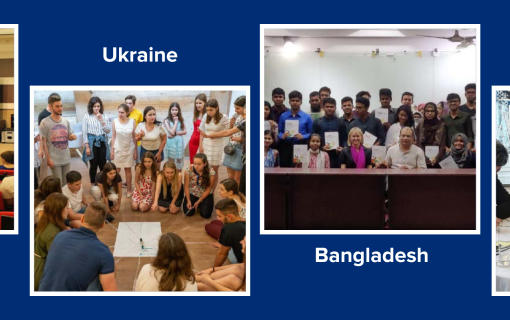Final Report, Guyana Election Assistance Project, October 1990 to November 1992
EXECUTIVE SUMMARY
The International Foundation for Electoral Systems (IFES) played a significant role in the development of the Guyanese electoral process and the preparations for the October 5, 1992 national elections in Guyana. IFES provided many types of election commodities and technical support services for the Guyana Elections Commission (GEC). The election commodities included ID card production equipment and supplies, metal tamper-proof ballot boxes, indelible ink, ballot paper and printing services, a nationwide radio communications system, and other balloting and clerical supplies.
Technical support services provided over the period of IFES involvement, which ran from October 1990 to November 1992, included the development of a pre-election technical assessment report followed by the provision of electoral systems experts as well as support in media, media relations, poll worker training, and civic education. Much of IFES' technical assistance involved implementing a body of administrative and legal reforms that had been introduced into the election code over the period of IFES involvement.
Further international support of the process was provided by the National Democratic Institute which provided a grant to the Guyana-based Electoral Assistance Bureau (EAB). The EAB provided voter information services and acted as a local observer of the electoral process. International election observation was provided by two groups: the Carter Center, and the Commonwealth Secretariat. The Carter Center maintained a full-time presence and staff from mid-1991 through the 1992 elections. The Commonwealth Secretariat fielded an observer team in Guyana several days prior to the October 5 balloting and at critical points during the months prior to the election they sent smaller fact-finding/observer teams.
Under Guyanese law, the election process is administered by both the Elections Commission and the National Registration Commission (NRC). The former setting electoral policy and governing the electoral process and the latter providing registration services, producing ID cards, and compiling and printing the Voters List. The head of the NRC holds both the title of Commissioner of Registration and Chief Electoral Officer. In the latter capacity, he is the operational officer for the election process. Under a 1992 electoral law reform, both agencies were technically "consolidated" into a single unit with the Chairman of the Elections Commission in charge.
The process of preparing for the elections moved forward in fits and starts with a critical turning point occurring when the December 15, 1991 elections were postponed because of lingering doubts about the Voters List. The extra ten months provided by the postponement were used to establish a more stable electoral structure and to more fully implement the electoral reforms that had been initiated towards the goal of holding the first "free and fair" elections in Guyana in three decades.
Election Day did not pass without a significant challenge to the electoral process. A violent crowd gathered outside the Elections Commission building and attacked it with stones and bottles, causing a temporary evacuation of international consultants and non-essential local staff. There were also reports of violence and looting in other locations around Georgetown and the country. Despite these attacks, the process moved forward to a highly successful and internationally credible conclusion. Both the Carter Center and the Commonwealth Secretariat international observer teams were able to certify the elections as "free and fair" due to the dedication and hard work of all those involved in the process.
Read the Full Report.








